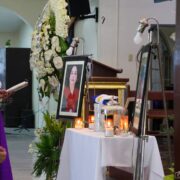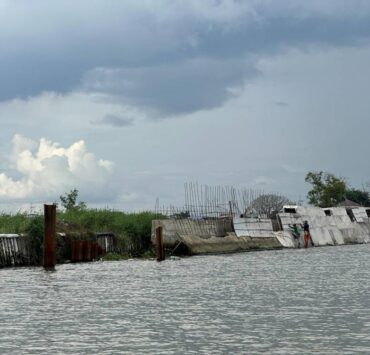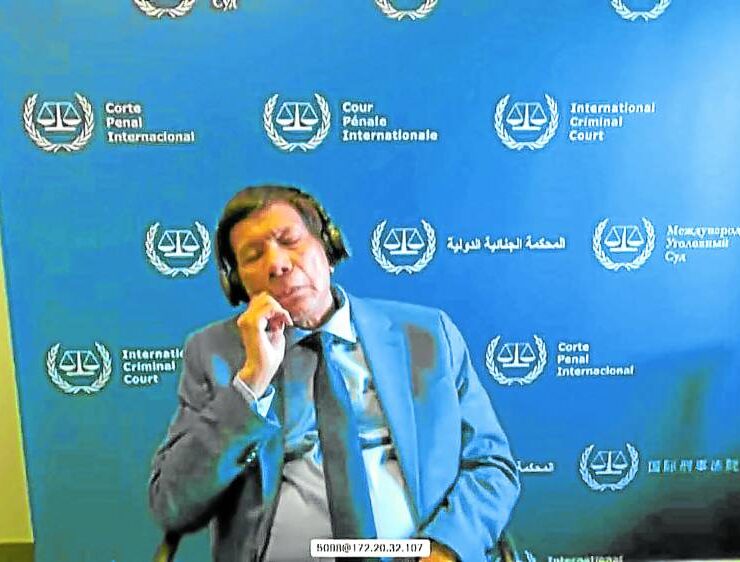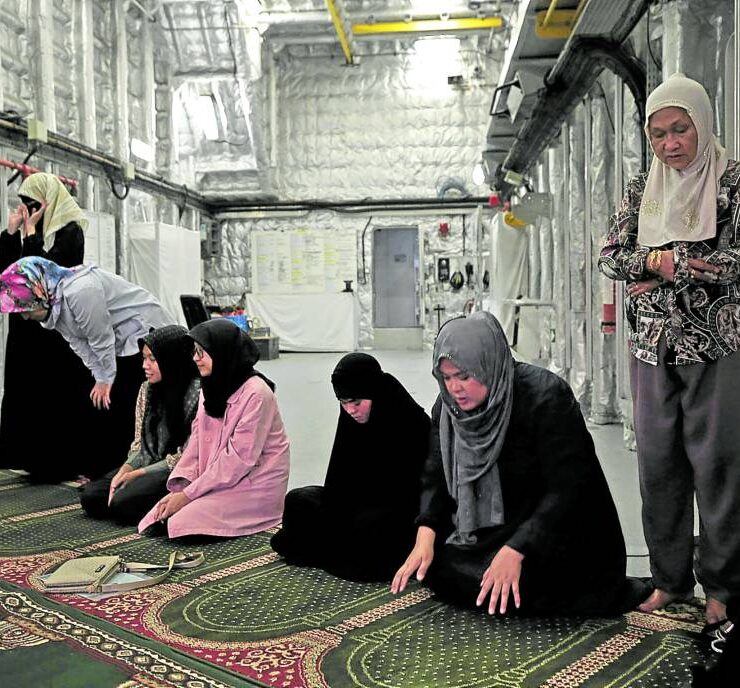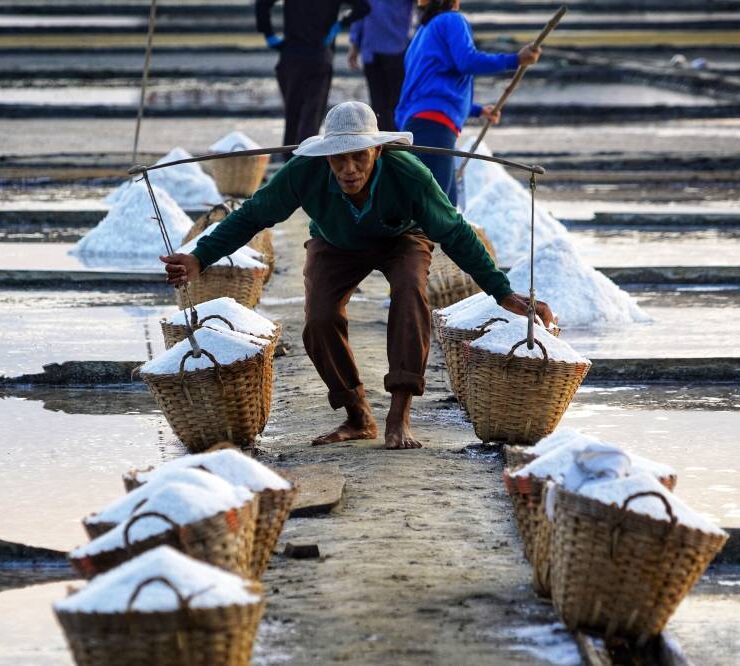Singson, Fajardo named to independent probe body
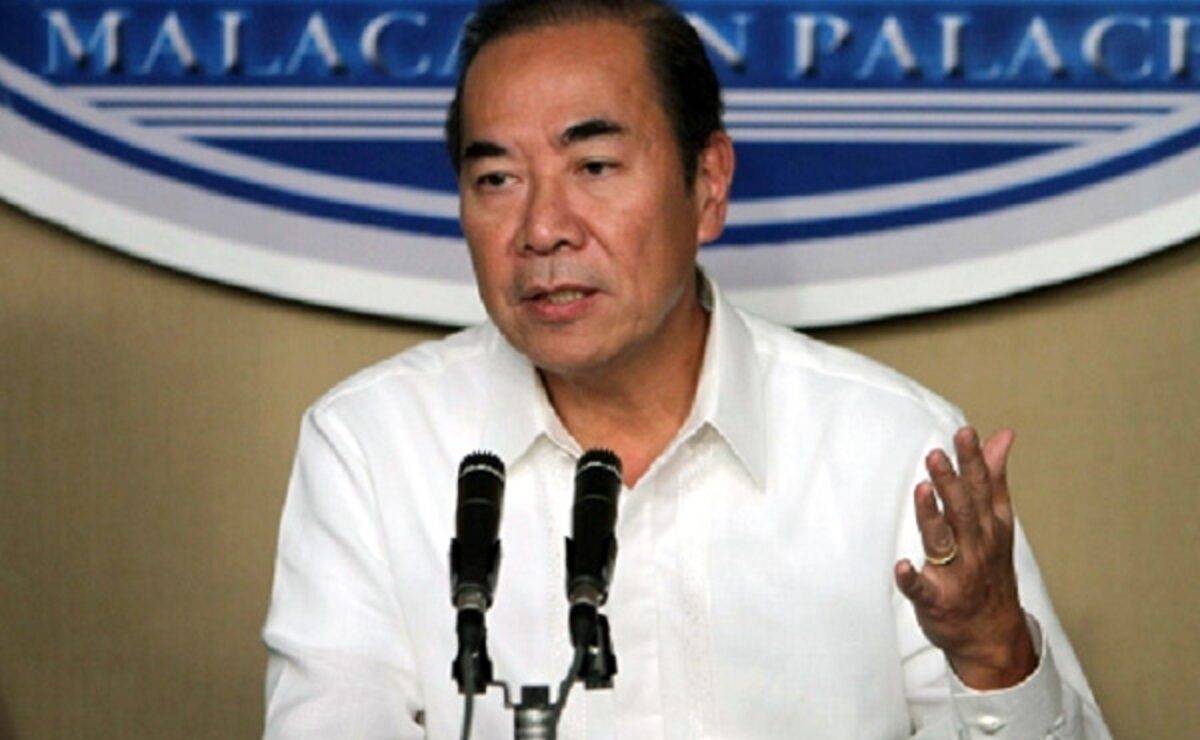
President Marcos appointed former Public Works Secretary Rogelio “Babes” Singson, recognized for his anticorruption efforts and good governance, and SGV & Co. country managing partner Rossana Fajardo, a certified fraud examiner, to the fact-finding body that would investigate anomalous flood control and other infrastructure projects.
The chair and third member of the Independent Commission on Infrastructure (ICI) would be named “in the coming days,” according to Malacañang press officer Claire Castro, who announced the appointments of Singson and Fajardo on Saturday.
Mr. Marcos created the ICI through an executive order (EO) on Sept. 11.
Baguio City Mayor Benjamin Magalong, a former national police official, was designated as the commission’s special adviser and investigator. He was among the first prominent government officials to point to alleged collusion among corrupt contractors, public works personnel and lawmakers to generate kickbacks from infrastructure projects.
The creation of the commission followed public outrage over the President’s own disclosures that billions of pesos of the people’s money had been lost to nonexistent, defective or incomplete flood control projects involving some of the country’s top contractors.
Confronting the system
“The President has appointed individuals of proven competence, integrity, and deep familiarity with infrastructure, finance, and institutional reform,” Castro said at a press briefing.
“Their acceptance of this responsibility is voluntary,” she said. “They are not appointed to defend the system, but to confront it. And most importantly, not one of them is connected to the agencies or contractors under investigation.”
The ICI will prioritize the investigation of flood mitigation and other infrastructure projects within the past 10 years.
This covers the final years of Benigno Aquino III’s term, when Singson served as secretary of the Department of Public Works and Highways (DPWH), and the Duterte and Marcos administrations.
Malacañang said Singson was chosen for his efforts to introduce systems that promote transparency, eliminate ghost projects and ensure proper use of public funds.
Fraud detection
An industrial engineer and businessman, Singson, who will turn 77 on Sept. 16, served under Aquino from 2010 to 2016.
Before joining the Cabinet, he was an executive in various government-owned and -controlled corporations, including the Bases Conversion and Development Authority.
“His technical understanding of how projects are designed, procured, and implemented will be essential to this Commission’s work,” Castro said.
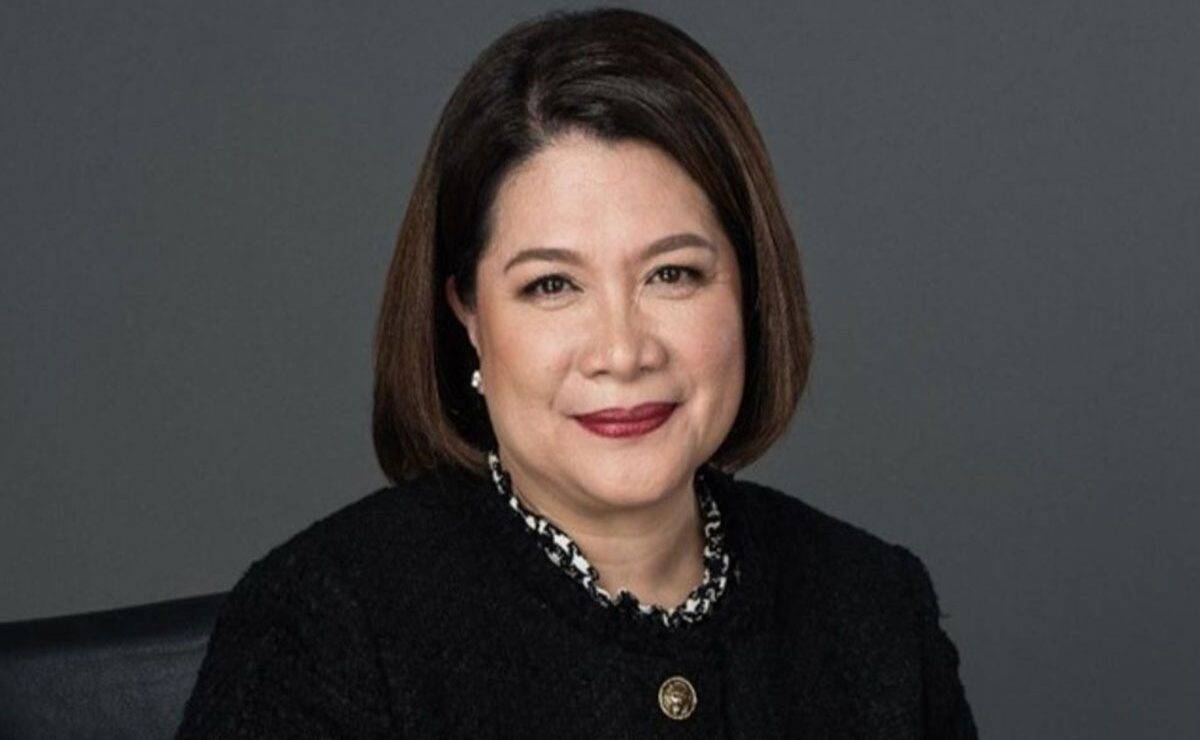
Fajardo of SGV & Co., the largest professional services firm in the country, has over three decades of experience in auditing, internal controls, and risk management, especially in identifying weaknesses in financial systems and operational processes.
As a certified public accountant (CPA), she has worked across both public and private sectors to help organizations detect fraud, strengthen governance, and build more accountable institutions, according to Castro.
In addition to being a CPA and certified fraud examiner, she also holds certifications as information systems auditor, information systems manager and in risk and information systems control.
“Her technical insight and financial acumen are critical in following the trail of public funds and determining where leakages and irregularities may have occurred,” Castro said.
Magalong’s creds
A retired police major general, Magalong served as deputy director general of the Philippine National Police and chief of the Criminal Investigation and Detection Group. He led the investigation of the 2015 deaths of 44 members of the Special Action Force during a commando operation that killed Malaysian terrorist and bomb-maker Zulkifli bin Hir.
“His experience in leading difficult investigations, uncovering internal wrongdoing, and enforcing compliance makes him a strong asset to this commission,” Castro said.
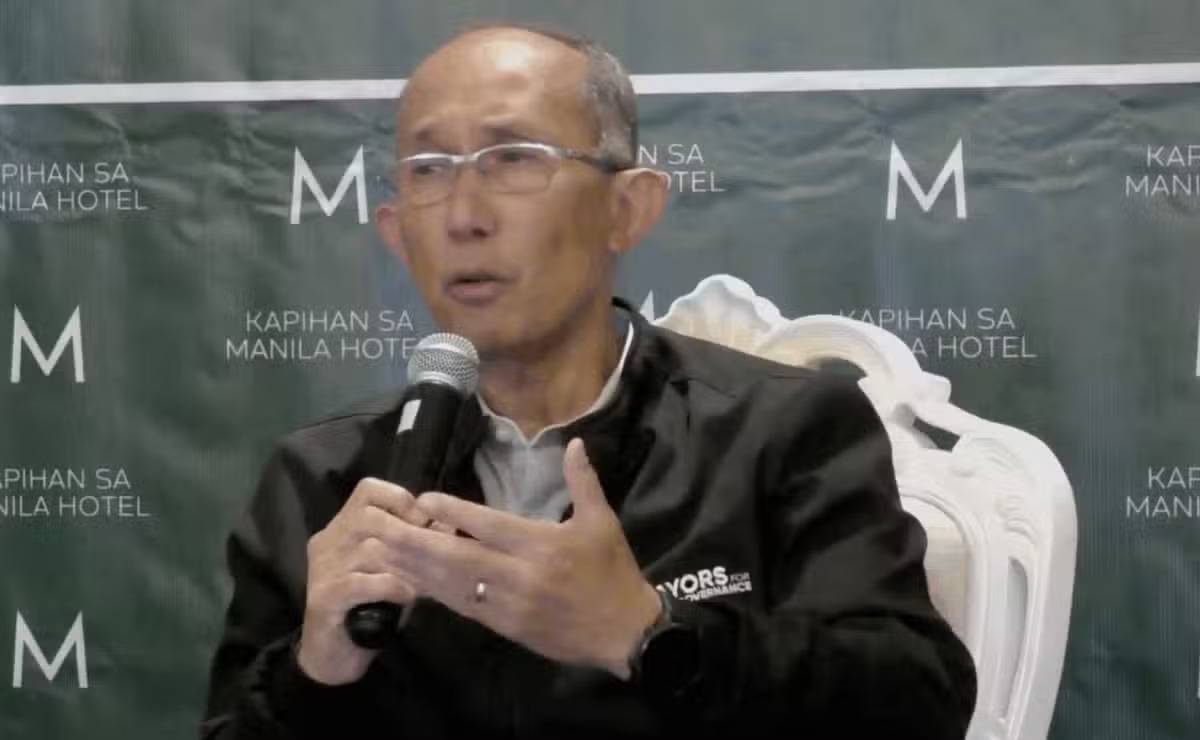
As an ad hoc fact-finding body, the ICI can act motu propio (on its own initiative), and on information, including intelligence reports, it receives against all government officials and employees, and private individuals.
Based on its findings, it shall recommend the appropriate criminal, civil, and administrative cases or actions against those responsible to such bodies as the Office of the President, Office of the Ombudsman, the Department of Justice and the Civil Service Commission.
“As the President has repeatedly said: No one will be spared. Even relatives, friends, or allies—there will be no sacred cows [in the ICI investigation],” Castro said.
The ICI will begin its work “immediately,” but the President did not give a deadline to finish its investigation.
“The timeline here is really about working more urgently and more quickly. And it would be best if this could be finished within just a few months,” Castro said.
Zaldy Co’s complaint
“But as we’ve said, given the large number of records that need to be studied, we must give the ICI the opportunity to thoroughly review all the documents so that when cases are filed, the documentation is complete,” she added.
It was Magalong’s appointment that drew concerns from lawmakers, particularly Ako Bicol Rep. Zaldy Co, who complained that the mayor had “prejudged” him for allegedly being among 67 lawmakers supposedly involved in flood control irregularities when he was the chair of the House appropriations committee.
“It does not give me confidence that this independent body will conduct a fair and unbiased investigation, given that the investigation has not started, but Mayor Magalong is already giving statements to the media on the subject and my alleged involvement based on rumors and hearsay,” Co said on Thursday when word spread that Magalong might be named to the commission.
“I was surprised to hear Mayor Benjamin Magalong mention my name to the media in connection with the flood control projects without saying what exactly I did. Again, I strongly deny any wrongdoing with respect to his vague claim,” he said.
‘Prejudgment’
Bicol Saro Rep. Terry Ridon, the chair of the House infrastructure committee which is also investigating the flood control projects, on Saturday said in a statement that the commission should determine whether Magalong’s “participation in certain cases may warrant inhibition to avoid any appearance of prejudgment.”
Magalong had alleged that Co was the “mastermind” of the flood control anomalies.
Ridon welcomed the appointment of Singson and Fajardo to the ICI.
“We have confidence in their competence and integrity to carry out the crucial task of investigating corruption in infrastructure and flood control projects, introducing meaningful reforms in public works, and ensuring that perpetrators of corruption are held accountable,” Ridon said.
Make it ‘citizen-led’
Also on Saturday, the largest coalition of civic organizations in the Philippines called on the administration to consider forming a separate citizen-led commission to investigate public works projects.
The Caucus of Development NGO (CODE-NGO) Network suggested in a statement that such a commission be composed of representatives of nongovernmental organizations, civic watchdogs, media, academe to conduct a “genuinely independent” probe.
CODE-NGO, which represents more than 1,600 NGOs, people’s organizations, and cooperatives nationwide, called the anomalous flood control projects as the biggest corruption scandal since the pork barrel scam was exposed in 2013.
The Senate blue ribbon committee is also conducting its own inquiries into these projects.
The coalition said the “brazen display of wealth by contractors and lawmakers linked to the projects, as well as that of their families, affirms the remorseless corruption at the heart of the controversy.”
It called on foreign donors to suspend funding for infrastructure projects that lack safeguards against corruption.
CODE-NGO urged agencies, such as the Securities and Exchange Commission, Philippine Competition Commission, and Anti-Money Laundering Council, to assist in scrutinizing contractors and monitoring public works reforms. —WITH REPORTS FROM FAITH ARGOSINO AND INQUIRER RESEARCH












